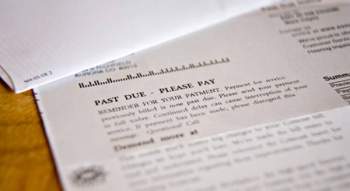
All You Need To Know About Debt Collection

What is a Debt?
Debt refers to something owed; usually assets owed, but the term can also encompass moral obligations and other interactions that do not revolve around money. In the case of assets or financial obligations, debt is a means of using future purchasing power in the present. As a result of this characteristic, many companies will use debt as a part of their overall business strategy.
Debt is created when a creditor (institution or individuals lending monies or assets) lends a sum of assets to a borrower. In American society and the majority of modern economic systems, debt is typically granted with an expected repayment schedule.
Before a debt can be solidified, both the borrower and the lender must agree on the manner in which the debt schedule will be satisfied. This payment plan is typically denominated as a sum of money, but can also be denominated in terms of goods or services.
Types of Debt:
A business will use various kinds of debt to finance its operations. The various types of debt, in general, can be categorized as such: secured and unsecured debt, 2) private and public debt, 3) syndicated and bilateral debt, and 4) other types of debt that display one or more of the characteristics previously noted above.
The majority of debt obligations are considered secured, if the creditor possesses recourse to the assets of the company on a proprietary basis or ahead of the general claims against the company. In contrast, unsecured debt comprises financial obligations, where a creditor does not have recourse to the assets of the borrower to satisfy the original claims.
A basic loan is the most simplistic form of debt; it will consist of an agreement to lend a principal sum for a fixed period of time and will require an agreement in regards to the repayment of the loan. In a commercial agreement, interest is calculated as a percentage of the principal sum per year.
What is Debt Collection?
Debt collection refers to the process undertaken when an individual fails to meet their respective repayment schedule attached to their loan agreement. Consumer debt collection is the term typically applied to various procedures or strategies that are utilized by the lender to recover or collect the outstanding debts owed to them.
Different strategies are implemented in debt collection; however, the process is only utilized when the creditor has reason to believe that the consumer will not continue to honor the terms and conditions that led to the extension of credit.
The Debt Collection process typically begins with reminders issued by the lender when payments are late; if the borrower fails to make payments the collector will use a debt collection agency to facilitate the repayment process.
In the most serious of situations, those that arise out of gross misconduct or revolve around exorbitant monies uncollected, the lender or debt collection agency will involve the utilization of a debt collection attorney, who will file a formal debt collection lawsuit. This initiative will allow the debt to be collected through the intervention of a court system.
For the majority of situations, the debt collection proves will begin with an effort by the lender to communicate with the debtor to elucidate upon the reasons for the delay in payment and attempt to work out terms that are acceptable to both parties. If these attempts fail, the lender may call the entire current due, while also closing the debtor’s account to continued use.
If the debt is tied to a tangible asset, such as a car or home, the lender has the ability to repossess the asset. All attempts at debt collection must be conducted in compliance with the particular debt collection laws of the respective jurisdiction; these laws must also be identified in the terms and provisions of the contract established between the lender and borrower at the time the agreement was made.



















